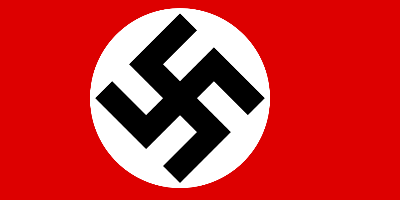jul 27, 1938 - Treaty of Non-Aggression between Germany and the Union of Soviet Socialist Republics.
Description:
Germany too knew the UK and France's time of talking and appeasement had come to a close and the country was underprepared for war with the Allied powers, and the threat facing Germany's east in the Soviet Union who had promised the French would come to the aid of Czechoslovakia should Germany invade left the Reich paralysed.The only choice was to stare down the true enemy in the east to blight the old foe in the west - and Reich foreign minister Joachim von Ribbentrop would do just that.
During the rapid and successful invasion of the Second Polish Republic, Hitler dispatched von Ribbentrop to discuss the terms of an agreement with the Soviet premier Joseph Stalin for a treaty of non-aggression.
Foreign Minister Litvinov - a virulent anti-fascist Jew would be left out of discussions.
This was a necessary step for the Germans to defeat the Allies and the Soviets, who are far less prepared for a major conflict, were willing to listen to Germany's proposal.
Litvinov would resign out of the refusal to support such a treaty and be instead replaced by the more willing Vyacheslav Molotov who would be the Soviet Union's new foreign minister and he would sign the treaty on behalf of the USSR.
What would follow would be known as the Molotov-Ribbentrop Pact. This treaty would carve Europe apart into spheres of influence between the Reich and the USSR guaranteeing the security of Hitler's eastern front.
The planned terms of the treaty follow;
Despite German claims to the region, the USSR would be allowed to seize the Baltic states of Estonia, Latvia, and Lithuania in the east.
This would be accompanied by the acceptance of Soviet claims to the Romanian region of Bessarabia and the whole Finnish territories.
The future border for this occupied Poland was discussed back and forth, but they finally concluded.
The USSR will gain the German-occupied Galicia, West Belorussia and the Białystok province while the rest of Poland will stay in Germany.
With the treaty officially signed on July 23th, Soviet armies moved west into Eastern Poland the next day, occupying the territory without resistance as German forces withdraw back to the agreed boundaries.
The UK had been warned of the agreement in advance by Carl Friedrich Goerdeler - who was a prominent German nationalist and monarchist who was against the National Socialist Government in Germany - had advised the new Halifax Government that talks between the Soviet and German Governments were underway, a fact that forced the Polish to keep minimal forces stationed on the eastern border in case of a future Soviet invasion.
The confirmation of the talks and new pact with Soviet occupation in Poland came as a devastating blow to the Allied powers, however. Lord Halifax himself suggested that "all could be lost" in the British cabinet, only to be encouraged by Churchill who reminded him of the power of the French Army.
While the UK and France tried to catch up and build up the military for war, the German Reich made its move.
Added to timeline:
Date:
jul 27, 1938
Now
~ 87 years ago
